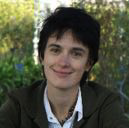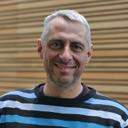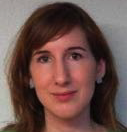The University of Oxford (UOXF) is a stimulating organization, which enjoys an international reputation as a world-class Centre of Excellence in research and teaching. It employs over 10,000 staff and has a student population of over 21,000. Oxford will have a broad engagement with the project through several Departments spanning two academic Divisions. The Department of Computer Science (ranked third internationally), and specifically its Computational Biology & Health Informatics Theme (CBHIT) focusses on biomedical and healthcare research through the development of innovative computational approaches such as high performance computing, multiscale modelling and simulation, machine learning, semantics-driven technologies and software verification. The proposed research builds on strong collaborations on imaging data science and machine learning with the Department of Engineering Science, especially with the Oxford Institute of Biomedical Engineering (IBME), a world-class centre for biomedical engineering research and postgraduate research training where engineers and clinicians work together on addressing unmet needs in the prevention, early diagnosis and treatment of major diseases and conditions. The proposed project also benefits from the Department of Experimental Medicine and John Radcliffe Hospital, and established collaborations with the Radcliffe Department of Medicine, the Advanced Research Computing centre and the Big Data Institute, a new, interdisciplinary research centre with a focus on the analysis of large, complex, heterogeneous data sets for research into the causes and consequences, prevention and treatment of disease.
Role in the project
Oxford University will play a leading role in cardiovascular and molecularly-based medicine exemplars research as well as in high performance data and for in silico clinical trials. The different Departments from Oxford brought together in this application combine extensive expertise in high performance computing for cardiovascular medicine, data analytics for large scale image and signal processing, molecular simulations, machine learning techniques and software for high performance computing simulations.
Key Personnel
 Professor Blanca Rodriguez – Professor of Computational Medicine, Wellcome Trust Senior Research Fellow in Basic Biomedical Sciences, Department of Computer Science. She is Head of the Computational Biology and Health Informatics Theme in the Department of Computer Science, which includes 12 academics with a wide range of expertise in numerical analysis, data analytics, computational modelling and software engineering, with strong links with the Radcliffe Department of Medicine, the Big Data Institute, the Advanced Research Computing centre, the Institute of Biomedical Engineering and industrial partners in pharmaceutical and biotechnology companies. She also leads the Computational Cardiovascular Science team, focused on the integration of computational methods in cardiovascular biomedicine, funded by the Wellcome Trust, MRC, EPSRC, European Commission, the BHF and industry.
Professor Blanca Rodriguez – Professor of Computational Medicine, Wellcome Trust Senior Research Fellow in Basic Biomedical Sciences, Department of Computer Science. She is Head of the Computational Biology and Health Informatics Theme in the Department of Computer Science, which includes 12 academics with a wide range of expertise in numerical analysis, data analytics, computational modelling and software engineering, with strong links with the Radcliffe Department of Medicine, the Big Data Institute, the Advanced Research Computing centre, the Institute of Biomedical Engineering and industrial partners in pharmaceutical and biotechnology companies. She also leads the Computational Cardiovascular Science team, focused on the integration of computational methods in cardiovascular biomedicine, funded by the Wellcome Trust, MRC, EPSRC, European Commission, the BHF and industry.
 Professor Vincente Grau – Professor in Computational Imaging. Department of Engineering Science, and a Tutorial Fellow at Mansfield College. He is the Director of the Centre for Doctoral Training in Healthcare Innovation and holds an academic link position at the Oxford e-Research Centre. Vicente’s research focuses on the development of biomedical image analysis algorithms, with an emphasis on the combination with computational models and machine learning approaches, and with applications on cardiac and pulmonary medicine. He has received several million pounds in research funding from multiple institutions and enjoys funded collaborations with several industrial partners (Microsoft Research, GE Healthcare, GSK).
Professor Vincente Grau – Professor in Computational Imaging. Department of Engineering Science, and a Tutorial Fellow at Mansfield College. He is the Director of the Centre for Doctoral Training in Healthcare Innovation and holds an academic link position at the Oxford e-Research Centre. Vicente’s research focuses on the development of biomedical image analysis algorithms, with an emphasis on the combination with computational models and machine learning approaches, and with applications on cardiac and pulmonary medicine. He has received several million pounds in research funding from multiple institutions and enjoys funded collaborations with several industrial partners (Microsoft Research, GE Healthcare, GSK).
 Dr Philip W Fowler – Senior Researcher. His research focus is on using molecular simulation to study protein binding on high performance computers. He heads a research group (http://fowlerlab.org) studying antimicrobial resistance (AMR) in the Department of Clinical Microbiology in the John Radcliffe Hospital, University of Oxford and collaborates closely with infectious disease clinicians and Public Health England. He uses the infrastructure of the Big Data Institute to comb through 10,000s of bacterial genomes for mutations conferring resistance. He is pioneering the use of image processing and citizen science approaches within clinical microbiology and is developing Machine Learning approaches to better interpret bacterial growth on 96-well plates. He sits on the University Research Computing Board, is Chair of the ARC Advisory Board and is heavily involved in Software and Data Carpentry.
Dr Philip W Fowler – Senior Researcher. His research focus is on using molecular simulation to study protein binding on high performance computers. He heads a research group (http://fowlerlab.org) studying antimicrobial resistance (AMR) in the Department of Clinical Microbiology in the John Radcliffe Hospital, University of Oxford and collaborates closely with infectious disease clinicians and Public Health England. He uses the infrastructure of the Big Data Institute to comb through 10,000s of bacterial genomes for mutations conferring resistance. He is pioneering the use of image processing and citizen science approaches within clinical microbiology and is developing Machine Learning approaches to better interpret bacterial growth on 96-well plates. He sits on the University Research Computing Board, is Chair of the ARC Advisory Board and is heavily involved in Software and Data Carpentry.
 Professor Mihaela Van der Shaar – Man Professor of Quantitative Finance in the Oxford, Department of Engineering Science at Oxford, Fellow of Christ Church College and Faculty Fellow of the Alan Turing Institute, where she plays a lead role in the program on data science for medicine. Professor van der Schaar has an international reputation for excellence in scholarship and research in the area of data science, data-driven decision making and machine learning. In particular, her research focuses on developing machine learning and decision theory for medicine, personalised education and finance.
Professor Mihaela Van der Shaar – Man Professor of Quantitative Finance in the Oxford, Department of Engineering Science at Oxford, Fellow of Christ Church College and Faculty Fellow of the Alan Turing Institute, where she plays a lead role in the program on data science for medicine. Professor van der Schaar has an international reputation for excellence in scholarship and research in the area of data science, data-driven decision making and machine learning. In particular, her research focuses on developing machine learning and decision theory for medicine, personalised education and finance.
 Dr Robert Esnouf – Director of Research Computing, Big Data Institute. Robert leads the research computing teams at the Big Data Institute and the neighbouring Wellcome Centre for Human Genetics as they build a unified high-performance computing infrastructure capable of addressing the largest challenges in biomedical research. The aim is to deliver a large-scale, costeffective, researcher-funded platform that drives collaboration between our researchers and also supports working with others across Oxford and further afield. The current cluster has over 6,000 compute cores backed by over 12PB of storage and developments include private cloud and long-term secure archiving solutions.
Dr Robert Esnouf – Director of Research Computing, Big Data Institute. Robert leads the research computing teams at the Big Data Institute and the neighbouring Wellcome Centre for Human Genetics as they build a unified high-performance computing infrastructure capable of addressing the largest challenges in biomedical research. The aim is to deliver a large-scale, costeffective, researcher-funded platform that drives collaboration between our researchers and also supports working with others across Oxford and further afield. The current cluster has over 6,000 compute cores backed by over 12PB of storage and developments include private cloud and long-term secure archiving solutions.
 Patricia Benito – Project Manager. Patricia Benito holds a MSc in Industrial Engineering from the University of Zaragoza (Spain), and has expertise in finite element methods in fluid mechanics, substantial experience in Research, Development and Innovation projects including European FP7 funded projects. Since 2013 she is working as project manager in Oxford with key responsibilities in data and software management, reporting, dissemination and public engagement activities in several European projects including the CompBioMed project.
Patricia Benito – Project Manager. Patricia Benito holds a MSc in Industrial Engineering from the University of Zaragoza (Spain), and has expertise in finite element methods in fluid mechanics, substantial experience in Research, Development and Innovation projects including European FP7 funded projects. Since 2013 she is working as project manager in Oxford with key responsibilities in data and software management, reporting, dissemination and public engagement activities in several European projects including the CompBioMed project.
 Dr Ana Mincholé – Senior researcher in Computational Cardiovascular Science. Dr Ana Mincholé research combines machine learning, high performance computing and biomedical signal processing to identify new biomarkers and risk factors in patients with cardiovascular research. She is part of the Computational Cardiovascular Team in Oxford since 2011, and has established collaborations with cardiologists at the John Radcliffe Hospital. She has conducted intensive high performance simulation studies in ARCHER, and previously she participated in the preDiCT-EC FP7 project (rated Excellent by the European Commission) and was awarded a Marie Curie Intra-European fellowship for Career Development in 2012.
Dr Ana Mincholé – Senior researcher in Computational Cardiovascular Science. Dr Ana Mincholé research combines machine learning, high performance computing and biomedical signal processing to identify new biomarkers and risk factors in patients with cardiovascular research. She is part of the Computational Cardiovascular Team in Oxford since 2011, and has established collaborations with cardiologists at the John Radcliffe Hospital. She has conducted intensive high performance simulation studies in ARCHER, and previously she participated in the preDiCT-EC FP7 project (rated Excellent by the European Commission) and was awarded a Marie Curie Intra-European fellowship for Career Development in 2012.
 Dr Francesc Levrero-Florencio – Postdoctoral Researcher in Computational Cardiovascular Science. His research is on computational biomechanics, with a track record on High Performance Computing first for multiscale solid mechanics applied to trabecular bone and more recently for electromechanical simulations of the human heart. His current interests include computational cardiac electromechanics, multiscale modelling and finite element code development for high performance computing platforms.
Dr Francesc Levrero-Florencio – Postdoctoral Researcher in Computational Cardiovascular Science. His research is on computational biomechanics, with a track record on High Performance Computing first for multiscale solid mechanics applied to trabecular bone and more recently for electromechanical simulations of the human heart. His current interests include computational cardiac electromechanics, multiscale modelling and finite element code development for high performance computing platforms.
